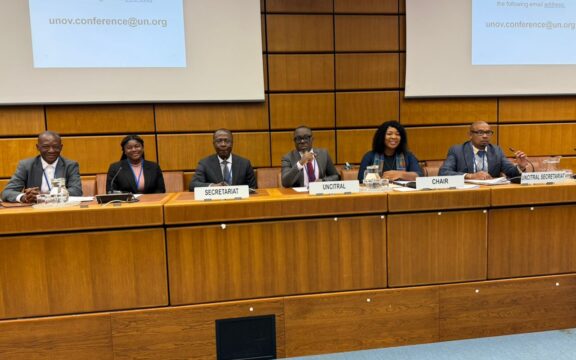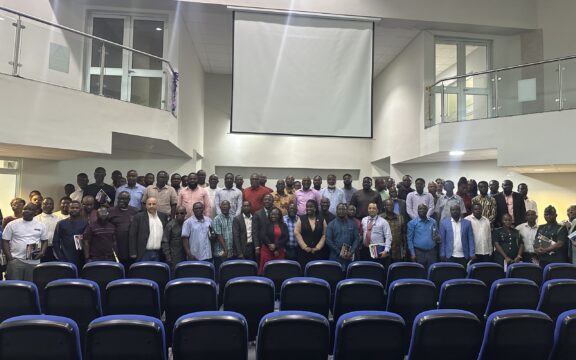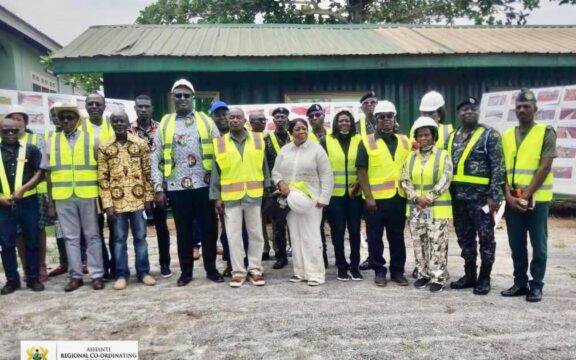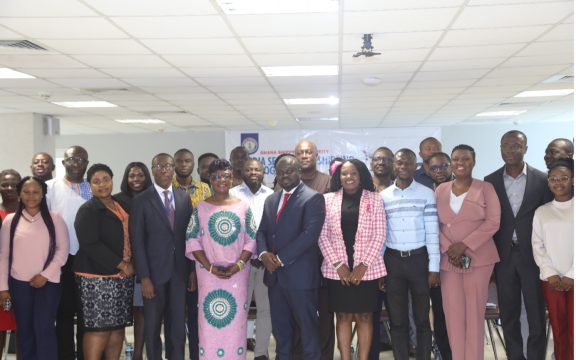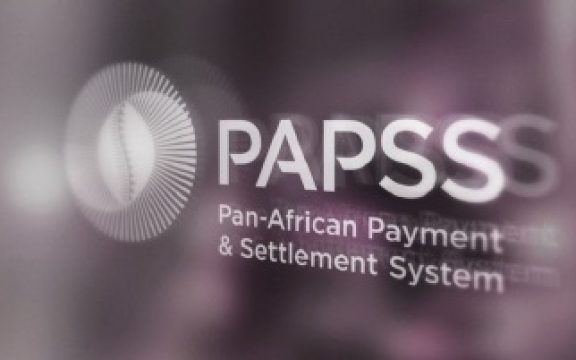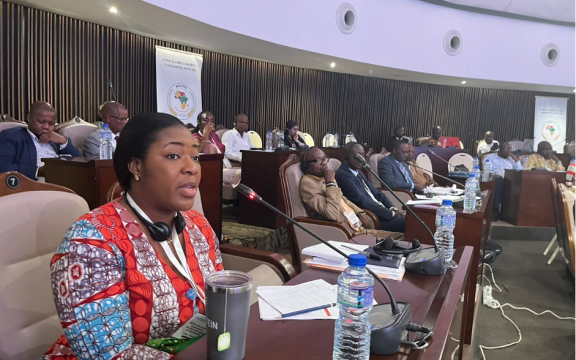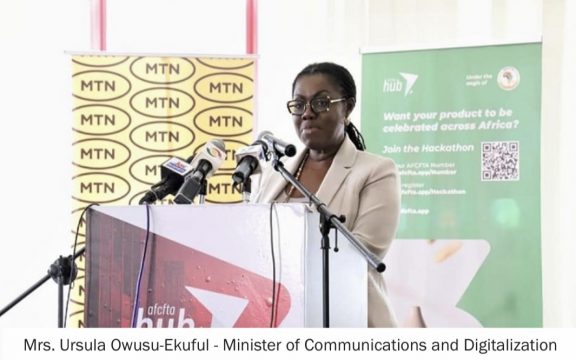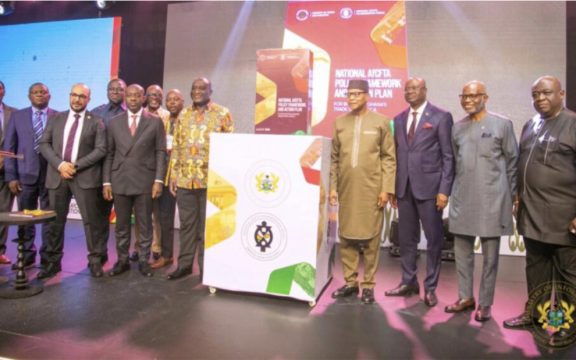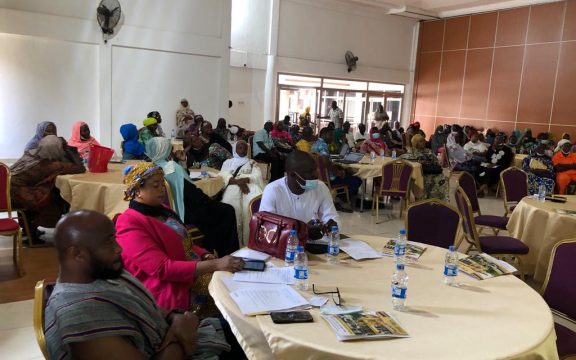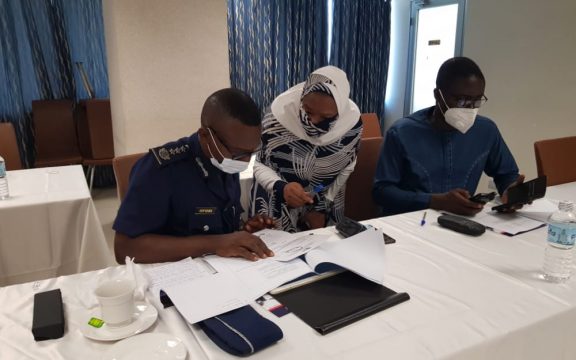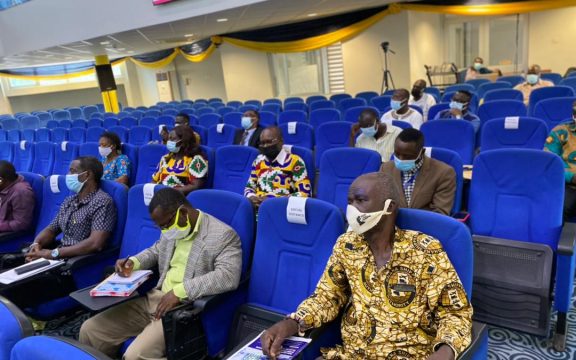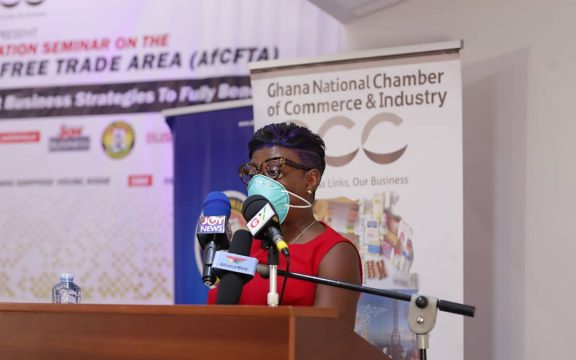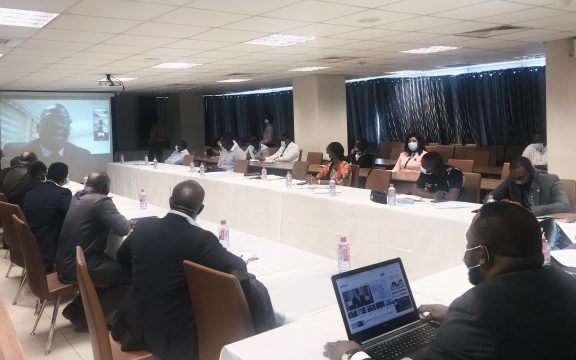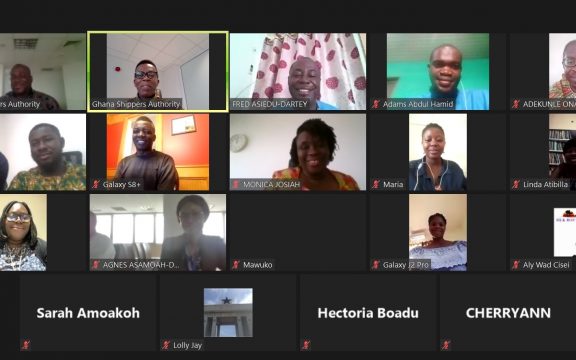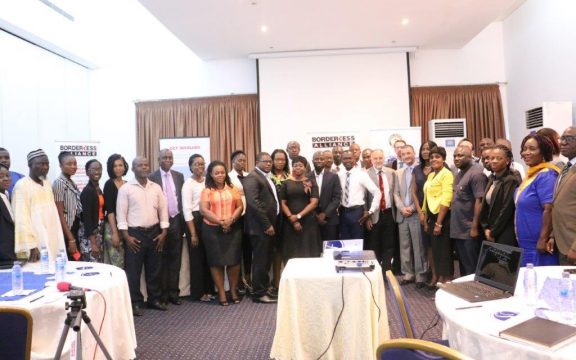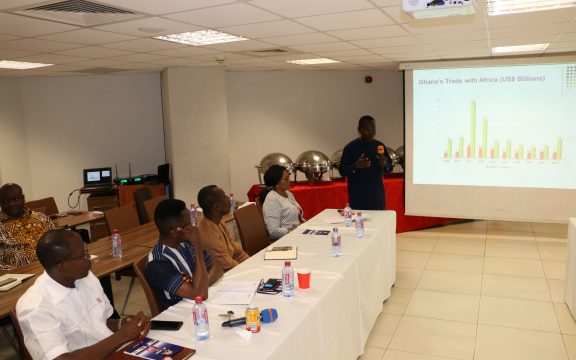 Cross-border trade refers to the movement of goods and services across a border between two countries or jurisdictions. It facilitates the supply of non-existent, scarce, high cost, or low-quality products or services from other countries and provides access for local products to international markets which is important for economic development. According to Trade Law Centre (TRALAC), cross-border trade plays a significant role within the economic and social landscapes of Africa. The African Development Bank (AfDB) estimates that it contributes to the income of about 43 percent (43%) of the entire population of Africa, supporting livelihoods and creating employment.
Cross-border trade refers to the movement of goods and services across a border between two countries or jurisdictions. It facilitates the supply of non-existent, scarce, high cost, or low-quality products or services from other countries and provides access for local products to international markets which is important for economic development. According to Trade Law Centre (TRALAC), cross-border trade plays a significant role within the economic and social landscapes of Africa. The African Development Bank (AfDB) estimates that it contributes to the income of about 43 percent (43%) of the entire population of Africa, supporting livelihoods and creating employment.
Over the years, it is evident that cross-border trade has become an increasingly important phenomenon within Africa. Regional and continental agreements such as the ECOWAS Trade Liberalization Scheme (ETLS) and the African Continental Free Trade Area (AfCFTA) have fostered and promoted internal trade among African countries. However, the objectives of these trade agreements may not be achieved if cross-border trade continues to be riddled with bottlenecks such as dissimilar cumbersome, time-consuming export regulations and procedures, infrastructure problems, non-tariff barriers and lack of financing which negatively impact the cost burdens and efficiency of the movement of goods across national borders.
Effective payment mechanisms and systems also play a key role in facilitating cross-border trade. In a continent made up of about 54 countries with 42 currencies in circulation, traders across Africa experience difficulties paying for goods or services across borders. In the process, traders lose valuable time and money. Cross-border traders have to either physically travel with the cash to make purchases which is very cost-ineffective and risky or face the bottlenecks associated with international transfers such as:
— Extra Charges like transfer fees, SWIFT charges and other ancillary bank charges
— Exchange Rate Disparities from the use of financial services companies such as Western Union or MoneyGram.
THE PAN-AFRICAN PAYMENTS AND SETTLEMENT SYSTEM (PAPSS)
PAPSS is the first continent-wide digital payment system for goods and services in local currencies. It is an initiative of the African Export-Import Bank (Afreximbank), African Union and the AfCFTA Secretariat which provides a centralized payment and settlement infrastructure connecting banks, service providers and other financial market intermediaries to facilitate intra-African trade and commerce payments.
Cross-border payments in Africa typically involve a third currency, such as the US dollar or Euro, leading to high costs and long transaction times.
The PAPSS platform enables companies to clear and settle intra-African trade transactions in their local currencies electronically and reduces the dependence on hard currencies
in regional trade payments.
The PAPSS is crucial in the implementation of the AfCFTA which seeks to create a single African market for goods and services covering 1.2 billion people.
HOW IT WORKS
PAPSS works through three core processes: instant payment, pre-funding and net settlement.
— Instant Payment
Instant payments are made by originators through an authorized participant (commercial bank) to beneficiaries in their local currencies, no matter where they are in Africa. Participants no longer need to convert local currency into hard currencies (USD or Euro) when using Instant Payment. In addition, the system does immediate compliance, legal, and sanctions checks. Payments are processed in less than 120 seconds through a five (5)-step process.
— Pre-funding
This process is to ensure safe transfers for both parties (sender and receiver) based on pre-funding agreements from participants. Because of the rapidity of the real-time payment process, PAPSS guarantees that funds are available to fulfill the originator’s transaction before causing debits and credits to be sent between participants’ accounts. As a result, participants must come to a finance agreement in advance. Participants without Real-Time Gross Settlement (RTGS) account, Indirect Participants (without settlement accounts), can fund or defund their clearing accounts on PAPSS with the aid of a Direct Participant providing the required liquidity. Notifications are carried via the ISO 20022 messaging standard, notifying PAPSS, the Participants and RTGS of the status of every stage of the transaction.
— Net Settlement
PAPSS will ensure that payments are made within 24 hours. Each day, net settlement occurs at the end of day (11.00) Coordinated Universal Time (UTC) across all participating central banks. The net position of all participating central banks is determined and PAPSS sends credit or debit settlement instruction to Central Bank RTGS (depending on net position). Central Bank RTGS reconciles the PAPSS Pre-funded Account and Central Bank Suspense account, confirms settlement and issues equivalent hard currency settlement instruction (based on the net position) to Afreximbank. The Afreximbank credits/debits the central bank’s hard currency settlement account held in Afreximbank and confirms to PAPSS.
BENEFITS OF PAPSS
— A simplified process that reduces the costs and complexities of payments for cross-border transactions between African markets. The PAPSS platform is expected to save the continent more than US$5bn in payment transaction costs per annum, formalize a significant proportion of the estimated US$50bn of informal intra-African trade, and above all, contribute in boosting intra-African trade.
— Enhanced financial inclusion opportunities and improved economic growth through intra-African trade. PAPSS would broaden the participation of traders in most African countries in the intra-African trade through the minimization and elimination of the high charges involved. More traders will indulge in intra-African trade which will boost economic growth.
— Facilitation of trade through instant/near instant payments of cross-border transactions without the hassle of currency conversion. PAPSS had been developed to reduce the complexities of send payments across African countries with different currencies. The platform converts the sender’s currency to the currency of the receiver which reflects instantly.
— The platform enables innovation in cross-border trade and access to new African markets. Trade between south African countries and the north African countries has been very nominal due to difficulties with payments. With PAPSS, goods and services from one part of the continent would reach customers in all parts of the continent at competitive prices and costs.

CONCLUSION
PAPSS may not fully eliminate the US dollar, Euro or British Pounds from transaction settlements in Africa, however this innovative tool can significantly reduce the trend and facilitate financial transformation between traders across the continent.
Furthermore, it will engender financial inclusion driven by the digital revolution which will foster market integration and increased production through prompt payments at a much lower transaction cost.



